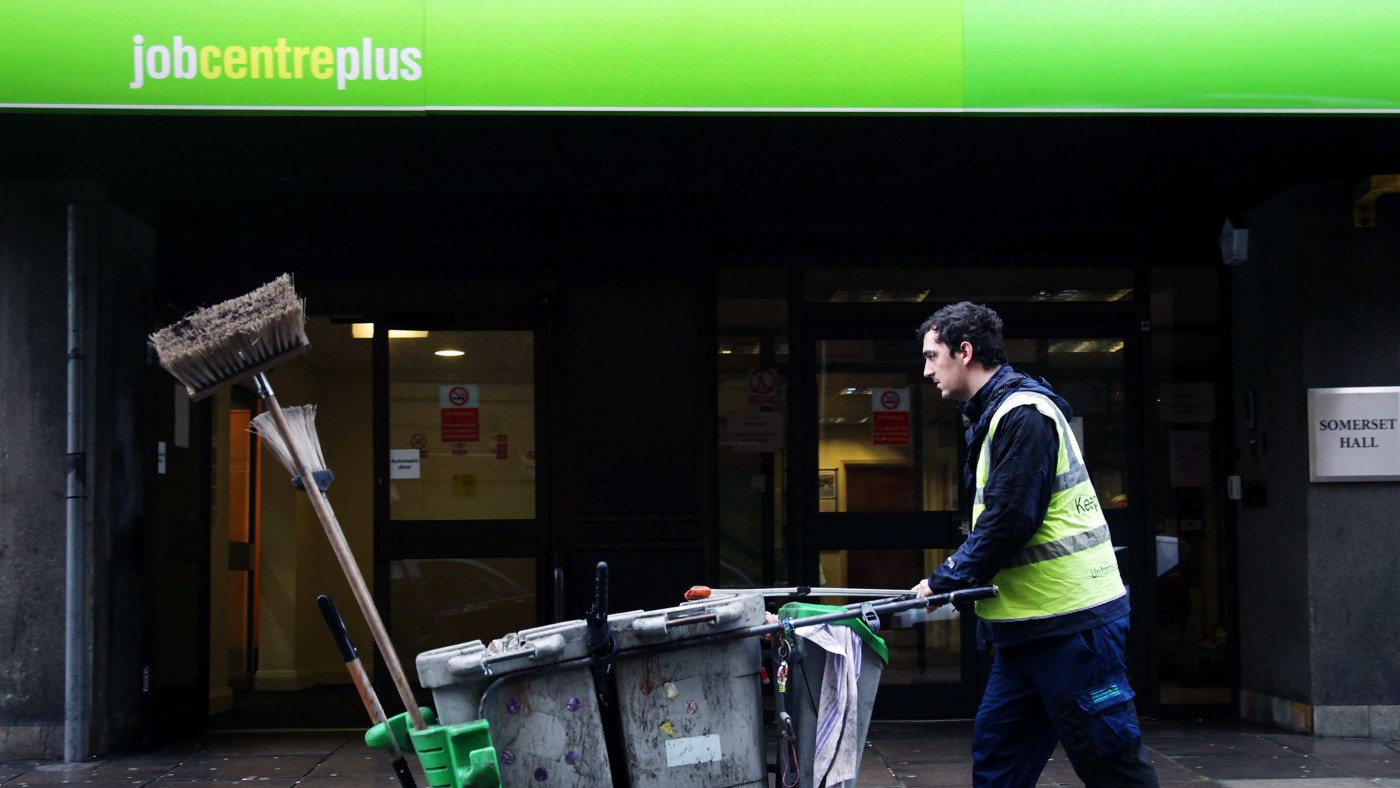It’s the most astonishing economic statistic in Europe. Over the past four years, the United Kingdom has created more net jobs than the other 27 members of the EU put together. 1.8 million additional people have found work, and more Britons are now in employment than ever before in history.
It’s true, of course, that the EU average has been dragged down by the euro crisis. Britain, having sensibly kept its own currency, was able to absorb part of the economic shock in its exchange rate where others felt it in output. But that doesn’t explain figures as stunning as these. Britain’s economy only started recovering properly at the beginning of 2013, yet unemployment – to the puzzlement of most economists – was tumbling even when there was little or no growth.
How could that be? How, in defiance of every prediction, could more and more jobs have come into being at a time when the economy was stagnant? Logically, there is only one explanation: people were prepared to work for less. Which, anecdotally, is precisely what happened. Foreign workers returned home, and their places were taken by Britons. Not until the first half of this year did wages begin to rise faster than prices.
Now the recovery is in full swing and the employment figures are breaking new records. 2014 has seen the largest annual drop in unemployment in 26 years: 423,600 people have come off Jobseeker’s Allowance in the past 12 months. The number of people in work is growing four times faster than the number of people of working age.
What are the magic ingredients? They are two: welfare reforms and tax cuts for the poor. The twain should be taken, though, as a single measure – a righting of the skewed incentives that had grown up under previous governments. By capping the total amount that a household could claim in benefits, and by re-testing people who were on invalidity benefits, the new regime made a life on welfare less attractive. But the more important change was to take low earners out of income tax. The personal allowance is now £10,000, a policy originally proposed in 2001 by Maurice Saatchi for the Centre for Policy Studies in Poor People! Stop Paying Tax!, and will rise to £10,500 next year. At his party conference speech, David Cameron promised to push it up further during the next Parliament, to £12,500.
Those relatively minor (and, in the scheme of things, inexpensive) tweaks to the tax-and-benefits system have had a palpable impact on the jobs market. You’ll have noticed the difference if you’ve spent any time in the South of England in the last couple of years. Even as a visitor, you’ll have seen and heard it. Five years ago, every waiter and porter, every receptionist and barmaid, was Polish or Lithuanian. These days, you hear plenty of local accents, because part-time low-paid work is now worth doing, in the sense that people get to keep a decent chunk of their earnings. The theory really does work in practice.
Indeed, tax cuts for people on low incomes are far better in practice than in theory. In an ideal world, we might favour flat taxes. Flat taxes are fair, easy to administer, make avoidance both pointless and impossible and stimulate enterprise. Lots of free market purists object in principle to special rates for the low-paid, and especially to exemptions. Everyone should, they say, have “skin in the game”.
In theory, this is true. In practice, it is bilge. The world is not ideal. It is complicated, messy, contradictory – gross rather than numinous, Aristotelian rather than Platonic. Every developed country has a welfare state. Social security, combined with a pure flat tax, creates all sorts of distortions at the lower end of the wage scale. Which is why most flat tax enthusiasts, including Milton Friedman, accepted that there had to be a personal allowance, too.
Quite apart from the economic case, the political case is overwhelming. Right-of-Centre parties the world over suffer from the same chief negative. Not a belief that they are racist or sexist or insufficiently eco-friendly, but a conviction that they are “on the side of the rich”. Small-statery can always be traduced in this way, because cutting taxes will necessarily benefit net taxpayers rather than net recipients.
In fact, as I’ve argued for CapX before, free-marketeers are the true friends of the little guy, socialists of the privileged. But, in order not to be caricatured, conservatives should make great play of cutting taxes for the poorest.
When Nigel Lawson lowered the top rate of tax, he combined it with a significant reduction of the basic rate. The net package was popular: as people saw their tax bills fall, they didn’t begrudge a similar fall in the tax bills of the wealthy. By contrast, when George Osborne foolishly cut the top rate of tax in isolation, the reaction was furious.
He has, it seems, learned his lesson. Although Labour likes to talk about a “cost of living crisis”, it doesn’t plan to do anything about the single largest component of the cost of living, namely the tax bill. Add up the direct and indirect levies paid by a working household at they amount to easily the largest single item on the family budget. Indeed, the combined tax bill typically comes to more than the car, the mortgage or rent, food and fuel bills put together.
Cutting that large tax bill is the one way that politicians really can help people feeling the pinch. It’s odd that Leftists can’t see it. You’d have thought that they’d be attracted by the Keynesian idea of putting more disposable wealth into the hands of the masses. And you’d certainly have thought that they’d applaud the shift towards full employment. There really is no pleasing some people.


